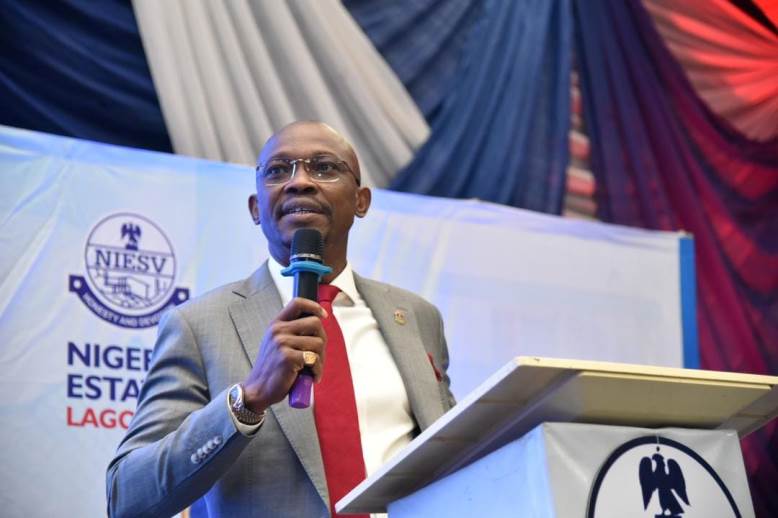Calls for significant reforms to Nigeria’s land and housing regulations gained momentum as professionals in the real estate sector raised concerns over outdated policies stifling development and accessibility.
Speaking during the 55th annual gathering of the Nigerian Institute of Estate Surveyors and Valuers (NIESV) in Abuja, the group’s president, Victor Alonge, emphasized the urgent need to revisit the Land Use Act—originally enacted in 1978. According to him, the decades-old legislation has become a barrier to equitable land access and real estate progress.
“Land acquisition remains a steep challenge for ordinary Nigerians,” Alonge remarked. “We need a modern, inclusive system that doesn’t cater primarily to high-end developers.”
Beyond land reform, Alonge pointed to persistent inefficiencies in the country’s housing strategies. He called for a revamp of the National Housing Policy, criticizing its lack of coherence and inadequate stakeholder involvement.

He argued that the existing policy often blurs the lines between affordable and social housing, resulting in initiatives that fail to serve low-income populations. “We routinely label homes as affordable, yet they’re priced far beyond the reach of everyday workers,” he said.
Highlighting global practices, Alonge cited examples where essential service providers such as nurses and teachers are given access to centrally located housing, allowing them to live within the communities they serve. He stressed that Nigeria needs a comparable approach to social housing that goes beyond mere rhetoric.
Alonge also proposed fiscal deterrents to combat property hoarding, suggesting that idle real estate should be subject to higher taxation. “When owners face steep levies on unused homes, they’re more likely to make those properties available,” he noted, drawing on policies implemented in more developed housing markets.
The NIESV leader concluded by urging policymakers to involve industry experts in shaping future regulations, warning that without strategic and inclusive planning, the housing deficit in Nigeria could deepen.



